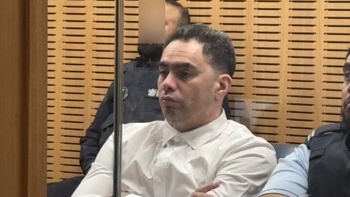How about this? I found myself agreeing this morning with someone who has been described as a racist dinosaur. To a point.
This lefty wokester, that some people seem to think I am, actually agrees with this Kings Council lawyer who disagrees with tikanga Māori being compulsory for students doing a law degree at university from next year.
I agree with someone who has been described as (quote) “a racist dinosaur who should quietly go and die in a corner”. How about that?
But to a point. That’s the key bit.
Gary Judd is his name. Or Gary Judd KC to be precise. And what he’s done, is he’s made a formal complaint to the Government’s Regulations Review Committee over this new requirement that’s due to come into force next year.
Now, for the purposes of this discussion, the general understanding of tikanga Māori is that it’s the way of doing things within Māori society.
So, it’s about principles, processes, procedures, and traditional knowledge. The customary rules which govern Māori life. Broadly, it’s what’s known as customary law. Law based on customs. As opposed to common law.
Gary Judd KC says tikanga actually has nothing to do with Common Law. And Winston Peters is an instant fan, saying that forcing law students to study tikanga Māori is just what he calls "woke indoctrination".
He says: “Law students should not be force-fed this kind of woke indoctrination from some culture warrior’s slanted version of what tikanga means.”
Which is kind of what Gary Judd KC is saying too. Although, the complaint he’s made to the Government’s Regulations Review Committee seems to be focussed on tikanga being what he calls “a belief system” and not what he calls a "proper law subject".
And because he sees it as being a belief system, he doesn’t think it’s relevant to be a compulsory element of a law degree.
And I agree with him. On the compulsory bit.
But I think any law student worth their salt would be an idiot to think they can ignore tikanga. Which is why I think it should be voluntary, not compulsory.
And I say that because I think tikanga Māori is something of a horse that has already bolted. What I’m getting at there, is that Māori principles, processes, procedures, and traditional knowledge can’t be ignored.
You might be someone who wants to ignore them. But if you’re happy living under a rock, then good luck to you.
But if someone reckons they’re going to make a good fist of being a lawyer in New Zealand in the 21st century, then they can forget about landing a job at any of the big law firms if they don’t understand Māori customary law.
They can forget about getting involved in environmental law. They can certainly forget about becoming an in-house lawyer at any of the government departments, or local councils. They can forget about getting involved in criminal law.
That’s because Māori customary law —or tikanga— has become so entwined in our legal system.
If you want a recent and very local example, here it is: Peter Ellis who was convicted for offences at the old Civic Creche, in Christchurch.
In 2019, the Supreme Court allowed him to appeal his convictions but he died a few months later. Nevertheless, his sexual offending convictions were quashed after he died, because the Supreme Court considered his appeal —even though he was no longer alive— based on tikanga.
Normally, a person's legal proceedings die with them. But Ellis' lawyers argued that tikanga, the customary rules which govern Māori life, was part of New Zealand's common law.
Under tikanga, Ellis had the right to clear his name or re-establish his mana, even after he died.
The Crown did not oppose the argument, agreeing that tikanga had a place in New Zealand law, and his name was cleared. Even though he wasn't alive to see it happen.
So that’s why I think anyone wanting to be a lawyer should study tikanga Māori. But only if they want to. And I agree with Gary Judd KC who says it shouldn't be compulsory.
Take your Radio, Podcasts and Music with you










